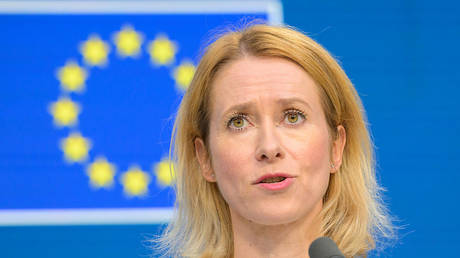ARTICLE AD BOX
The measure appears to target the EU, the main supplier of patented medicines to the US
US President Donald Trump has announced a 100% tariff on imports of branded drugs starting from October, in a move aimed at forcing manufacturers to shift production to America.
Trump has overhauled US trade policy since returning to office, imposing sweeping tariffs on key trading partners to protect domestic industry. The US president has long argued that tariffs fix unfair trade deficits and stop other countries from “ripping off” the US. Critics say the policy raises domestic prices and hurts the economy.
The new drug tariff will not apply to companies that are already investing in US manufacturing, with exemptions granted if a plant is “breaking ground” or “under construction,” Trump stated in a social media post on Friday.
Read more EU must mend relations with Trump – Kallas
EU must mend relations with Trump – Kallas
The measure is expected to hit Europe hardest as it is the dominant supplier of branded drugs to the US, led by Ireland, Germany, Switzerland, and Belgium. Generic medicines, which are mainly imported from India, are exempt from the levy.
In April, Trump labelled the EU “nastier than China” regarding trade practices. He claimed that the bloc is at least partly to blame for the excessively high prices that Americans pay for prescription drugs. According to the president, Brussels has been unfairly exerting “brutal” pressure on pharmaceutical companies to keep prices low in Europe, while refusing to shoulder the fair share of firms’ research and development and other related costs. He fell short, however, of imposing tariffs on pharmaceuticals at the time.
READ MORE: EU queen Ursula preached transparency – then did backdoor deals with Big Pharma
Major firms, including Merck & Co., AstraZeneca, Roche, Novartis, and Johnson & Johnson, have since announced billions in new US manufacturing projects. At the same time, 32 pharmaceutical companies sent a joint letter to European Commission President Ursula von der Leyen, warning that Trump’s tariffs could shift more than €100 billion ($117 billion) in investment out of Europe over the next few years. The CEOs urged Brussels to overhaul pricing rules, strengthen patent protections, and streamline regulation to keep the continent competitive.
.png)
 1 hour ago
2
1 hour ago
2








 English (US)
English (US)